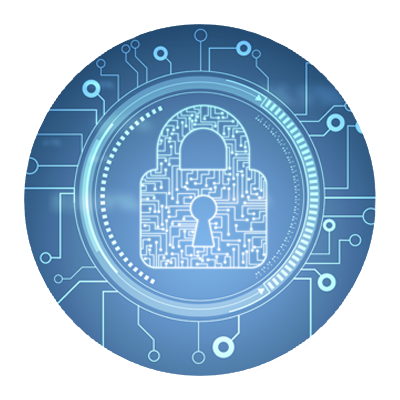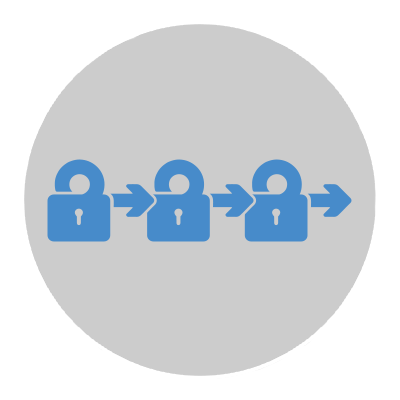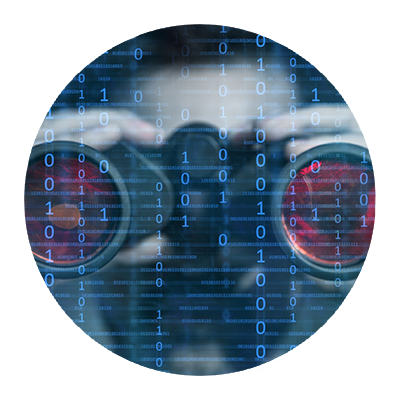CYBER SECURITY
Software Assurance & Policy Development • RMF Transition Services • Independent Verification & Validation
Cyber Security has become an increasing concern as the field of information technology grows, and more and more businesses have a greater amount of data being processed by computer systems. With so much information being generated and stored and so many facets of the world being handled by computers, the threat of security breaches grows, as does the risk for failure caused by malfunctions that may result from even the most unintentional breaks in the chain of security. We offer our clients our expertise in mitigating the risks, implementing systems that safeguard their data and protect the technology that keeps their businesses running.
Each member of the cyber security team has received certification as a Certified Information Systems Security Professional (CISSP), an accreditation that is formally approved by the DoD in both their Information Assurance Technical (IAT) and Managerial (IAM) categories. We are also globally recognized in the field of IT security. Included in the cyber security services we offer is authentication, which helps guarantee that access to information and systems is granted only to those individuals who have been authorized and will maintain security. Implemented plans for cyber security also ensure that each component has been constructed to maintain the integrity of the systems and the data, and that access is monitored and properly verified at all times.
Software Assurance & Policy Development
We offer our clients software assurance and policy development, which assesses software to assure that it is free from any vulnerability issues and defects that put our clients’ infrastructure at risk.
Accreditation & RMF Transition Services
Our teams of experts have the necessary experience to provide maintenance of existing DIACAP accreditations in the interim period. We assist our clients in navigating the upcoming adjustments to RMF with DIACAP to RMF gap analysis.
Active Accreditation™. The automated energetic pursuit of Cybersecurity and system Compliance Certification.
Accreditation & RMF Transition Services
Our teams of experts have the necessary experience to provide maintenance of existing DIACAP accreditations in the interim period. We assist our clients in navigating the upcoming adjustments to RMF with DIACAP to RMF gap analysis.
In development Active Accreditation™. The automated energetic pursuit of Cybersecurity and system Compliance Certification.
Independent Verification & Validation
We offer our clients Independent Verification and Validation to evaluate the efficiency, viability, and functionality of software.
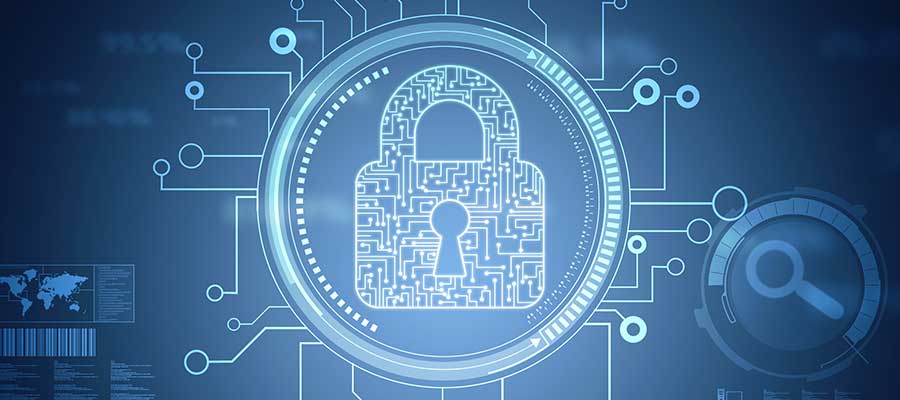
SOFTWARE ASSURANCE & POLICY DEVELOPMENT
Our software assurance and policy development conduct various diagnostic exams and tests to ensure that the software functions in the manner for which it is intended.
A staggering number of security incidents are the result of software and any defects it may have in design, coding, or development. In order to safeguard against such security incidents, software applications must be properly tested and verified as secure and fully functional from the very first stages of their development. At H2, we offer our clients a means of risk management called software assurance and policy development, which assesses software to assure that it is free from any vulnerability issues and defects that put our clients’ infrastructure at risk. These vulnerabilities and defects include any that may have been designed into the software intentionally as malware or viruses, as well as those security issues that may have accidentally been introduced at any time during its lifecycle. Our software assurance and policy development
also conduct various diagnostic exams and tests to ensure that that the software functions in the manner for which it is intended.
Among other highly important aspects of risk management, software assurance and policy development both play vital roles in maintaining the integrity of information, the efficiency of technology systems, and the security of databases. By ensuring that only verified software has been implemented, software assurance and policy development prevent the high cost of repairs that must be made when software malfunctions occur, and security incidents arise.
SOFTWARE ASSURANCE & POLICY DEVELOPMENT
Our software assurance and policy development conduct various diagnostic exams and tests to ensure that the software functions in the manner for which it is intended.
A staggering number of security incidents are the result of software and any defects it may have in design, coding, or development. In order to safeguard against such security incidents, software applications must be properly tested and verified as secure and fully functional from the very first stages of their development. At H2, we offer our clients a means of risk management called software assurance and policy development, which assesses software to assure that it is free from any vulnerability issues and defects that put our clients’ infrastructure at risk. These vulnerabilities and defects include any that may have been designed into the software intentionally as malware or viruses, as well as those security issues that may have accidentally been introduced at any time during its lifecycle. Our software assurance and policy development also conduct various diagnostic exams and tests to ensure that that the software functions in the manner for which it is intended.
Among other highly important aspects of risk management, software assurance and policy development both play vital roles in maintaining the integrity of information, the efficiency of technology systems, and the security of databases. By ensuring that only verified software has been implemented, software assurance and policy development prevent the high cost of repairs that must be made when software malfunctions occur, and security incidents arise.


Accreditation & RMF Transition Services
Our teams of experts have the necessary experience to provide maintenance of existing DIACAP accreditations in the interim period. We assist our clients in navigating the upcoming adjustments to RMF with DIACAP to RMF gap analysis.
In order to better align with changing technology, the Department of Defense (DoD) has undergone significant changes with regards to their cyber security processes. In the past, the DOD has utilized a type of accreditation called DoD Information Assurance Certification Accreditation Process (DIACAP), which is now being replaced by National Institute of Standards and Technology (NIST) Risk Management Framework (RMF). Unlike DIACAP, which operated on a three-year cycle of Certification and Accreditation (C&A) activities with Information Assurance reviews conducted on an annual basis, RMF takes a more dynamic approach to risk management by continuously monitoring security. Such significant changes align the DoD’s accreditation processes with those used by the majority of the federal government and commercial entities, which will heighten governmental cyber defense.
In the midst of a transition from existing DIACAP-based accreditations to RMF, many DoD departments are encountering a number of complications due to the larger base of security controls implemented by RMF. At H2, our teams of experts have the necessary experience to provide maintenance of existing DIACAP accreditations in the interim period. We assist our clients in navigating the upcoming adjustments to RMF with DIACAP to RMF gap analysis. We provide a plan of action to prepare for RMF transition based
on our expertise in DIACAP and RMF security controls, agency policies, hosting environment mappings, and inheritance models. In order to prepare for the event of accreditation collaboration, we socialize non-conventional accreditation issues with the Security Control Assessor (SCA) and Authorizing Official (AO) to ensure a more successful collaboration and more fully achieve accreditation objectives. We have a team of Fully Qualified Navy Validators able to assist our Information Assurance professionals and provide guidance throughout the process of transitioning from DIACAP to RMF.
The RMF transition services offered by our team provide training and consulting directly to various governmental organizations as well as to the contractors and service providers with whom we do business. Our team of specialists holds the NEW Fully Qualified Navy RMF Validator certification, which ensures that the RMF transition services we provide are recognized by the United States Navy for their degree expertise in the transition to the security and risk-management protocols defined within RMF. In addition, our services maintain a continuous assessment of all security controls to safeguard against any risks of a breach that may arise under such sensitive circumstances.
Accreditation & RMF Transition Services
Our teams of experts have the necessary experience to provide maintenance of existing DIACAP accreditations in the interim period. We assist our clients in navigating the upcoming adjustments to RMF with DIACAP to RMF gap analysis.
In order to better align with changing technology, the Department of Defense (DoD) has undergone significant changes with regards to their cyber security processes. In the past, the DOD has utilized a type of accreditation called DoD Information Assurance Certification Accreditation Process (DIACAP), which is now being replaced by National Institute of Standards and Technology (NIST) Risk Management Framework (RMF). Unlike DIACAP, which operated on a three-year cycle of Certification and Accreditation (C&A) activities with Information Assurance reviews conducted on an annual basis, RMF takes a more dynamic approach to risk management by continuously monitoring security. Such significant changes align the DoD’s accreditation processes with those used by the majority of the federal government and commercial entities, which will heighten governmental cyber defense.
In the midst of a transition from existing DIACAP-based accreditations to RMF, many DoD departments are encountering a number of complications due to the larger base of security controls implemented by RMF. At H2, our teams of experts have the necessary experience to provide maintenance of existing DIACAP accreditations in the interim period. We assist our clients in navigating the upcoming adjustments to RMF with DIACAP to RMF gap analysis. We provide a plan of action to prepare for RMF transition based on our expertise in DIACAP and RMF security controls, agency policies, hosting environment mappings, and inheritance models. In order to prepare for the event of accreditation collaboration, we socialize non-conventional accreditation issues with the Security Control Assessor (SCA) and Authorizing Official (AO) to ensure a more successful collaboration and more fully achieve accreditation objectives. We have a team of Fully Qualified Navy Validators able to assist our Information Assurance professionals and provide guidance throughout the process of transitioning from DIACAP to RMF.
The RMF transition services offered by our team provide training and consulting directly to various governmental organizations as well as to the contractors and service providers with whom we do business. Our team of specialists holds the NEW Fully Qualified Navy RMF Validator certification, which ensures that the RMF transition services we provide are recognized by the United States Navy for their degree expertise in the transition to the security and risk-management protocols defined within RMF. In addition, our services maintain a continuous assessment of all security controls to safeguard against any risks of a breach that may arise under such sensitive circumstances.
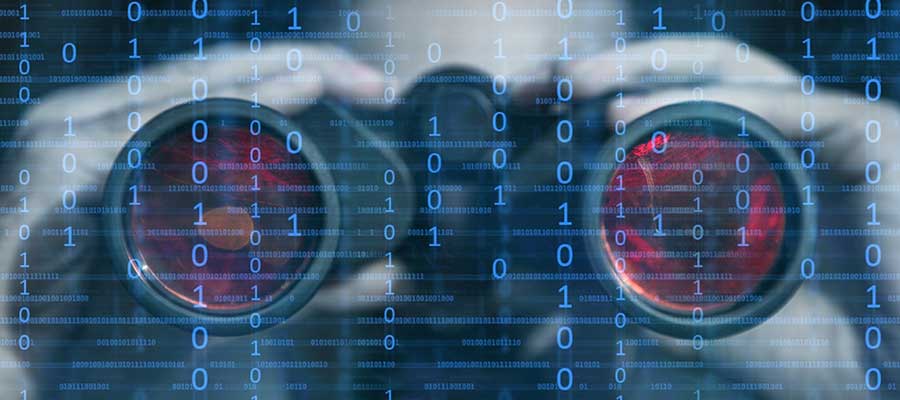
INDEPENDENT VERIFICATION & VALIDATION
We offer our clients Independent Verification and Validation to evaluate the efficiency, viability, and functionality of software.
In all areas of business, but even perhaps more so in the IT world, Independent Verification and Validation (IV&V) is a highly valuable method of quality control. It is the process of validation and verification of a product by a third party who has been in no way involved in the development of the product. Because an unbiased third party is conducting the verification and validation, it is a more reliable means of ensuring that the requirements of the user will adequately be met and that the product is fully functional. Specifically, in regards to software, Independent Verification and Validation is extremely beneficial in such areas as reviewing source code, analyzing the data provided
by the software, performing functional testing to ensure that the software meets our client’s requirements, and performing various tests to ensure that the software will assimilate well with other software applications and be properly absorbed within any systems already in place.
At H2, we offer our clients Independent Verification and Validation to evaluate the efficiency, viability, and functionality of software that they may already have in place or may be considering as an option for integrating into their systems.
INDEPENDENT VERIFICATION & VALIDATION
We offer our clients Independent Verification and Validation to evaluate the efficiency, viability, and functionality of software.
In all areas of business, but even perhaps more so in the IT world, Independent Verification and Validation (IV&V) is a highly valuable method of quality control. It is the process of validation and verification of a product by a third party who has been in no way involved in the development of the product. Because an unbiased third party is conducting the verification and validation, it is a more reliable means of ensuring that the requirements of the user will adequately be met and that the product is fully functional. Specifically, in regards to software, Independent Verification and Validation is extremely beneficial in such areas as reviewing source code, analyzing the data provided by the software, performing functional testing to ensure that the software meets our client’s requirements, and performing various tests to ensure that the software will assimilate well with other software applications and be properly absorbed within any systems already in place.
At H2, we offer our clients Independent Verification and Validation to evaluate the efficiency, viability, and functionality of software that they may already have in place or may be considering as an option for integrating into their systems.
WHO WE SUPPORT
At H2, we've had the opportunity and pleasure to work with many great organizations.




















